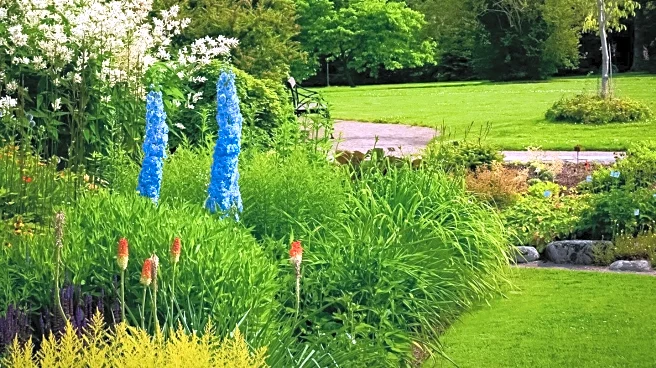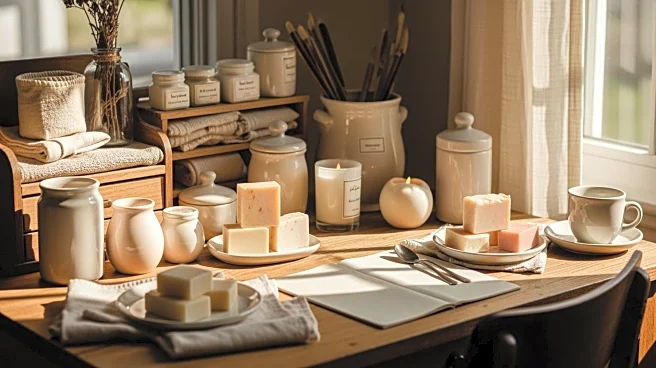What's Happening?
Roy Diblik, a horticultural expert from Northwind Nursery in Wisconsin, recently shared his insights on ecological gardening at the Berkshire Botanical Garden's 'Drawing on the Land' symposium. Diblik emphasized the importance of using natural plant materials, such as leaves and organic matter, instead of wood mulch to enhance soil quality. He advocates for the use of native sedges to protect the ground under shrubs and trees, arguing that these plants work in conjunction with tree roots to create a moisture-retentive environment. Diblik's approach, termed 'Know Maintenance Garden,' promotes using plant matter to provide nutrition, improve soil tilth, and retain moisture. He suggests using a long-handled hoe and a mulching mower to convert last year's vegetative growth into organic matter, reducing the need for frequent lawn mowing.
Why It's Important?
Diblik's ecological gardening practices offer a sustainable alternative to traditional landscaping methods, which often rely on wood mulch and extensive lawn areas. By promoting the use of native plants and organic materials, Diblik's approach can lead to healthier soil ecosystems and reduced maintenance efforts. This method supports biodiversity and can help mitigate the environmental impact of conventional gardening practices. As more gardeners and landscapers adopt these techniques, there could be significant benefits for local ecosystems and a reduction in resource consumption, such as water and fertilizers.
What's Next?
The ideas presented by Diblik at the symposium may inspire further educational initiatives and workshops at botanical gardens and nurseries across the country. As interest in sustainable gardening grows, institutions like the Berkshire Botanical Garden might consider offering courses on ecological planting plans and maintenance strategies. This could lead to a broader adoption of Diblik's methods, influencing how gardens are designed and maintained in both residential and commercial settings.
Beyond the Headlines
Diblik's approach to gardening reflects a broader cultural shift towards sustainability and environmental consciousness. By drawing on the philosophies of figures like Rachel Carson and Aldo Leopold, Diblik connects gardening practices to a larger tradition of ecological stewardship. This perspective encourages gardeners to view their work as part of a community effort to protect and enhance natural landscapes, fostering a deeper connection to the environment.









